
Charles Bannister (1738–1804) was an English actor, comedian and singer.
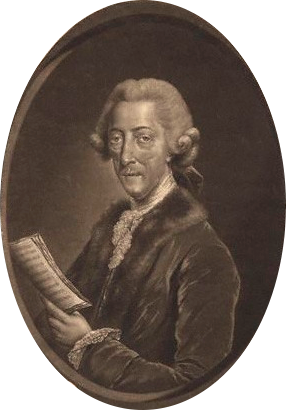
Thomas Augustine Arne was an English composer. He is best known for his patriotic song "Rule, Britannia!" and the song "A-Hunting We Will Go", the latter composed for a 1777 production of The Beggar's Opera, which has since become popular as a folk song and a nursery rhyme. Arne was a leading British theatre composer of the 18th century, working at the West End's Drury Lane and Covent Garden. He wrote many operatic entertainments for the London theatres and pleasure gardens, as well as concertos, sinfonias, and sonatas.

Michael Arne was an English composer, harpsichordist, organist, singer, and actor. He was the son of the composer Thomas Arne and the soprano Cecilia Young, a member of the famous Young family of musicians of the seventeenth and eighteenth centuries. Like his father, Arne worked primarily as a composer of stage music and vocal art song, contributing little to other genres of music. He wrote several songs for London's pleasure gardens, the most famous of which is Lass with the Delicate Air (1762). A moderately prolific composer, Arne wrote nine operas and collaborated on at least 15 others. His most successful opera, Cymon (1767), enjoyed several revivals during his lifetime and into the early nineteenth century.
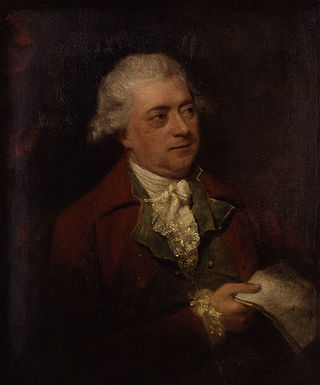
John O'Keeffe was an Irish actor and dramatist. He wrote a number of farces, amusing dramatic pieces and librettos for pasticcio operas, many of which had great success. Among these are Tony Lumpkin in Town (1778), Love in a Camp (1786), and Omai (1785), an account of the voyages of the Tahitian explorer Omai, and Wild Oats (1791).

The Duenna is a three-act comic opera, mostly composed by Thomas Linley the elder and his son, Thomas Linley the younger, to an English-language libretto by Richard Brinsley Sheridan. At the time, it was considered one of the most successful operas ever staged in England, and its admirers included Samuel Johnson, William Hazlitt and George Byron.
Polly Young was an English soprano, composer and keyboard player. She was part of a well-known English family of musicians that included several professional singers and organists during the 17th and 18th centuries. Her husband, François-Hippolyte Barthélémon, was a composer and violinist, and their daughter, Cecilia Maria Barthélemon, was also a composer and opera singer.
William Michael Rooke was an Irish violinist and composer.

Amilie, or the Love Test is an opera in three acts by the Irish composer, William Michael Rooke, to a libretto by John Thomas Haines.

Patrick in Prussia, or Love in a Camp is a 1786 comic opera with music by William Shield and a libretto by John O'Keeffe. An afterpiece, it was a sequel to the 1783 hit The Poor Soldier with the characters now serving in the Prussian army.
The Shamrock is a 1777 Irish play or pasticcio opera by John O'Keeffe. It was first staged on 15 April 1777 at Crow Street Theatre in Dublin. According to White (1983), it is unsure whether the work was performed as a straight play or as a pasticcio opera to music by William Shield, as in its altered version as an afterpiece for the London stage, The Poor Soldier (1783).
The Farmer is a two-act comic opera with music by William Shield and a libretto by the Irish writer John O'Keeffe, set in London and Kent and premiered at the Theatre Royal Covent Garden on 31 October 1787.

Joseph George Holman (1764–1817) was an English actor, dramatist and actor-manager.
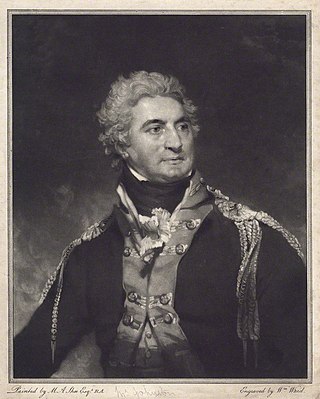
John Henry Johnstone (1749–1828), also known as 'Jack' Johnstone or 'Irish' Johnstone, was an Irish actor, comedian and singer. He was a notable performer of Stage Irishman roles.
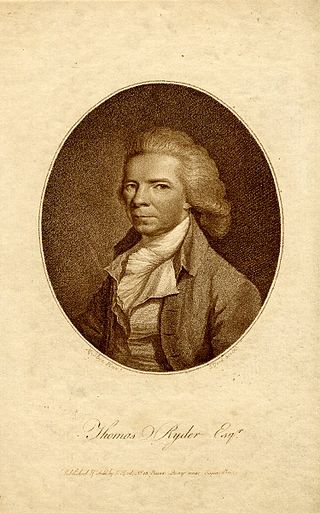
Thomas Ryder (1735–1790) was a British actor and theatre manager, associated with the Smock Alley Theatre in Dublin. As a player, he was considered at his best in low comedy.
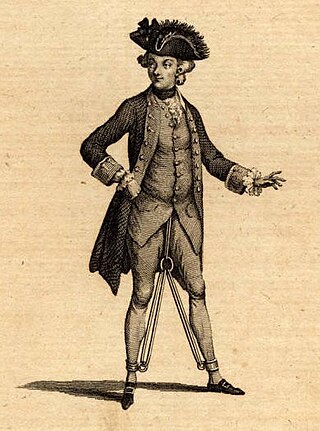
Margaret Kennedy was a contralto singer and actress. She was best known for her performances in male roles, especially in the operas of Thomas Arne.
Charles Thomas Carter was an Irish composer and organist with mixed success as an opera composer in London, but with some songs that remained popular beyond his lifetime.
George Frederick Stansbury was a British composer, musical director and arranger and an operatic singer. Although contemporary reviewers described his voice as of "poor quality", he was nevertheless an excellent musician and a ready composer.
Laurence Clinch (c1740-1812) was an Irish actor, familiarly known as Larry, and accomplished in both tragedy and comedy. The popular farce St Patrick's Day was written and performed to showcase his particular talent.

Ralph Wewitzer (1748–1825) was an English actor. He won critical acclaim in supporting parts, but was never given leading roles. He had a 44-year acting career, and is thought to have learned over 400 speaking parts.
Edward Evans Townsend (1766–1809) was a Welsh stage actor and singer. After making his reputation as a touring actor in Yorkshire, notably at Hull under the management of Tate Wilkinson, he was at the Theatre Royal, Norwich in the early 1790s. He also appeared in Ireland at the Crow Street Theatre and the Theatre Royal, Cork.













